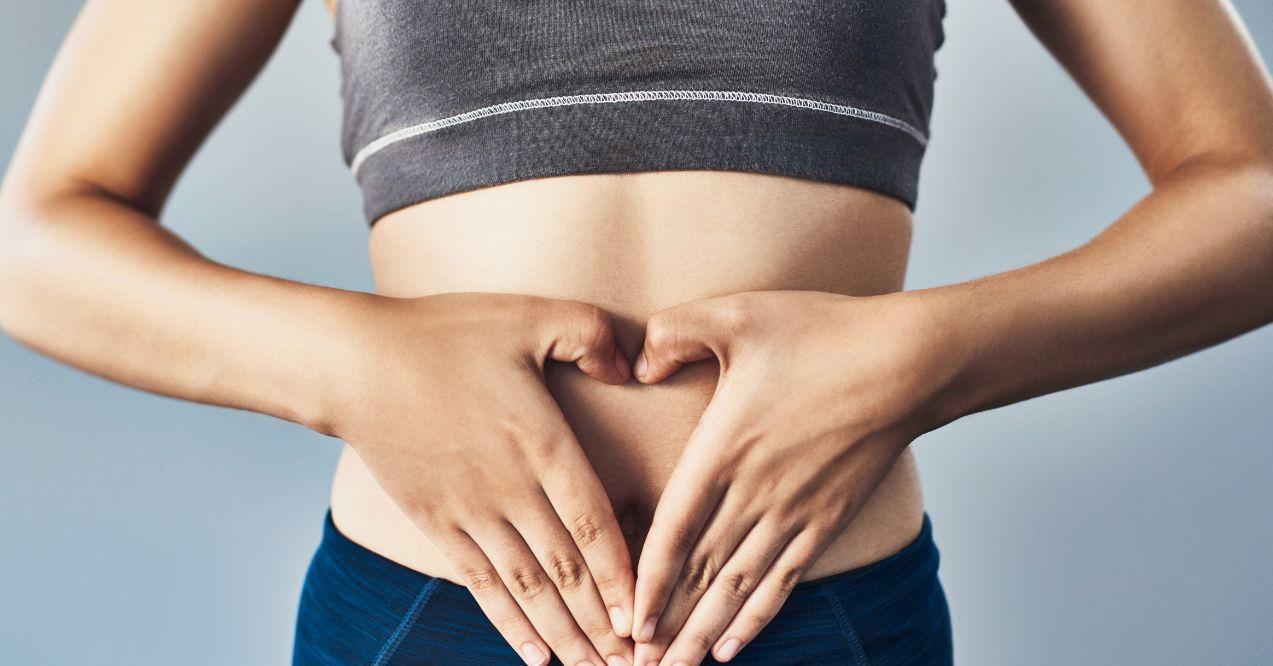6 Reasons for Low Energy Levels in Females
Read this post to learn about the causes of low energy levels in females. You’ll also discover natural ways to feel more energetic throughout the day!


What causes low energy levels in females? Well, gone are the days when fatigue was merely a function of lack of sleep or physical exertion. Today’s fast-paced lifestyle and a cocktail of health and lifestyle factors can leave us ladies feeling exhausted. Low energy levels in women are typical, especially with age, but what really drives this condition?
From hormonal shifts and nutritional deficits to the constantly spinning wheel of modern life, the underlying causes of low energy levels in females are varied and often interconnected.
The essence of this post is to demystify low energy levels in women. Our aim is to highlight the different triggers and offer practical solutions and suggestions. So, what causes really low energy levels in females? Read on.
Reasons for Low Energy Levels in Females
Understanding the reasons for low energy levels in females who feel tired is really important. A few explanations exist, such as changes in their bodies and the way they live. Let’s talk about some specific reasons.
1. Menstruation

Feeling tired during your period is normal. How tired you feel can be different for each person. The decrease in estrogen levels during this time affects neurotransmitters like acetylcholine, dopamine, and serotonin, which are crucial for sustaining healthy sleep and energy levels.
If a female has really heavy periods, that can make them feel tired. This is because losing too much blood means less oxygen gets to their cells. So, their bodies have to work harder to make up for the energy they need. Moreover, the onset of premenstrual syndrome (PMS) symptoms can disrupt sleep patterns, amplifying fatigue during the menstrual cycle. Additionally, for those who wonder, “Does ovulation make you tired?” each woman’s experience can vary, but fatigue is a common symptom of the ovulatory phase.
2. Stress and Anxiety

Wondering, “Why does my body feel heavy?” Stress and anxiety may be among the issues that cause low energy levels in both females and males. With all the expectations women face from society, their families, and themselves, it’s no wonder they often feel overwhelmed.
Essentially, stress can be short-term (acute) or long-term (chronic). Acute stress is temporary, releasing adrenaline, which increases heart rate, breathing, blood pressure, and blood glucose for the brain, muscles, and cellular repair.
However, when stress becomes a chronic condition, the body tires and energy drops, resulting in continuous feelings of fatigue. Chronic stress manifests itself physically through fatigue, which can disrupt sleep or even just cause aches/pains throughout the body. Anxiety impacts motivation as fear of failure, for example, reigns supreme in the mind, keeping one stuck, seemingly without a way forward.
3. Inadequate Sleep

It’s pretty clear that not getting enough sleep can cause us to feel completely drained and exhausted. But for women, anything less than 6-7 hours of sleep per night has further harmful effects on their bodies. Unhealthy amounts of slumber disrupt our hormones and physiology, which then interfere with how we perform during the day. For example, it can make it harder for us to be productive at work or even enjoy leisurely activities like going out with friends.
Research also suggests that an insufficient amount of rest leads to decreased libido in females, irregular periods, and raised cortisol (the stress hormone) levels. All this can contribute significantly towards fatigue throughout the day. Furthermore, women who ingest caffeine or alcohol late in the night are more prone to poor sleep. Therefore, eliminate or limit alcohol to one glass of wine with an early dinner and avoid caffeine after noon. Also, getting regular exercise has proved to help improve sleep.
4. Pregnancy

Pregnancy is a huge deal. It’s incredible to see how your body and mind transform during this particular time in life. However, this period can also be pretty exhausting. High production of the progesterone hormone, notably in the first trimester, can make a woman feel drowsy.
Furthermore, during this time, you might find yourself waking up more often during the night to use the bathroom. Also, as your baby grows, their movements might wake you up. Pregnancy symptoms such as leg cramps, heartburn, and back pain can also make it difficult for you to get quality sleep. Other things that might make you feel drained during your pregnancy include:
- Morning Sickness
- Carrying Extra Weight
- Pregnancy Anxiety
5. Poor Diet

When it comes to energy levels and fatigue in women, a poor diet is a significant contributor. Eating healthy food is critical for maintaining high energy levels. Eating unhealthy food puts you at a risk of experiencing malnutrition despite your weight. As a woman, you are at a high risk of suffering from malnutrition because of increased caloric requirements caused by:
- Pregnancy
- Menstruation
- Lactation
Therefore, consuming unhealthy processed foods with high sugar or salt content is not ideal. Why? They can really take their toll on your energy level throughout the day. Hydration also plays a big role – make sure you drink enough water daily to replace any fluids lost during physical activities. Soda or sugary drinks are not recommended as they’re high in calories but offer little nutritional value; instead, opt for healthier options like herbal tea.
6. Chronic Fatigue Syndrome

This is a baffling condition that affects millions of people all around the globe. Usually, it is a complex and long-term health condition. Chronic fatigue syndrome causes extreme tiredness that does not go away regardless of how one rests. It can even worsen when your daily activities require both mental acuity and physical effort.
Technically, researchers do not understand the leading causes of this condition. However, many people complain of chronic fatigue syndrome after an infection like influenza. It’s most noticeable in women compared to men, with a ratio of about 4:1.
Reasons for Low Energy Levels in Females Over 30
Feeling low energy levels is normal when you’re a woman in your 30s. In fact, it happens pretty often! We all can find ourselves feeling drained and with no energy left for the things we need to do every day.
As women transition through their 30s, the cumulative effects of childbearing years, heightened stress levels, and evolving lifestyles can significantly impact energy reserves. Scientific studies emphasize the intricate dance between hormonal shifts, such as fluctuations in estrogen and progesterone, and babybearing as the main cause of low energy levels in females 30 and above.
Reasons for Low Energy Levels in Females Over 40
It’s not a secret. Women start struggling with a decrease in energy levels beginning from the late 30s and early 40s. Every person knows how hard it can be to stay on top of the requirements of a full-time job, plus taking care of family needs. All these responsibilities could weigh heavily on you and leave you exhausted by the day’s end. But what is responsible for this? Some of the factors contributing to low energy levels in females over 40 are:
- Hormonal changes associated with menopause
- Poorly regulated sleep
- Stress
- Lifestyle choices
Reasons for Low Energy Levels in Females Over 50
As women navigate menopause and the subsequent postmenopausal phase, hormonal adjustments influence energy levels. Around age 50, women go through menopause. Usually, during this time, their bodies produce fewer hormones like estrogen and progesterone. These hormones help maintain energy, so when there are fewer of them, tiredness occurs.
Another cause of low energy levels in females over 50 is a slower metabolism. As you get older, your metabolism starts to slow down. This means your body doesn’t convert food into energy as fast as it used to. This can make you feel tired because your body isn’t making energy as quickly.
Reasons for Low Energy Levels in Females Over 60
So, what causes low energy levels in females over 60? As we age, our energy levels seem to dip because of various explanations. This is particularly true for women surpassing the 60-year mark. Each woman experiences different issues that cause exhaustion, such as age-related metabolic slowdown, chronic health conditions, and potential medication side effects.
Other universal causes can be physical shifts affiliated with menopause, lifestyle components such as stress and lack of exercise or poor diet plan, as well as dark moods and emotional feelings of distress.
How to Naturally Boost Energy Levels
It’s not unusual for women to experience tiredness and fatigue throughout the day. You might wake up completely exhausted, unable to get a good night’s sleep no matter how hard you try. Whatever it is that’s causing this dip in vitality, there are some ways of naturally rejuvenating yourself without relying solely on caffeine or sugary snacks! They include:
1. Eating a Balanced Diet
Maintaining a balanced diet is the first step to increasing your energy levels naturally. Therefore, prioritize eating a lot of vegetables and fruits since they contain lots of nutrients. Furthermore, include healthy fats from nuts, avocados, and olive oil. These foods can help maintain steady blood sugar levels, increasing overall energy levels.
2. Exercising
Exercising is another effective way to ensure a natural energy boost. Going for walks outside is a fantastic way to make yourself feel good as the activity increases happy chemicals called endorphins. Doing things like yoga and stretching are also terrific options. They can release those energizing endorphins and even make it easier to sleep better at night. You can begin with simple exercises and do more as your body strengthens. Additionally, if you’re looking for specific health benefits, you might be interested in what exercises lower blood sugar the fastest. Incorporating aerobic exercises, like brisk walking or cycling, can help lower blood sugar levels quickly and effectively. So, try to do some kind of physical activity every day to feel more energetic!
3. Cutting Back on Alcohol and Cigarettes
Avoiding alcohol and cigarettes is the most essential lifestyle change you should make if you want to get a natural energy boost. Drinking decreases REM sleep, which is vital for physical and mental health. Additionally, it contributes extra empty calories along with toxins that have to be processed by your body. Stopping these habits will help enhance your stamina and keep you alert during daytime hours!
4. Getting Quality Sleep
Sleep tends to be of lower priority as people lead busy lives. However, it is critical. Quality sleep is imperative for restoring both physical and mental energy, helping you ward off exhaustion.
Trying to fit in 7-9 hours per night as an adult can be a challenge. Nevertheless, if you want greater alertness and vitality throughout your day, ensure adequate restfulness gets top priority on your agenda!
5. Using a Supplement
PureHealth Research special supplement can help you and is recommended by health experts like Dr. Holly Lucille, ND. Blood Sugar Formula consists of 17 evidence-backed, formidable ingredients scientists have proven top-quality for energy maintenance. Taking this formula can help you in various ways:
- Supports Healthy Blood Sugar Levels – The ingredients in Blood Sugar Formula work together to promote a healthy blood sugar metabolism. The supplement helps optimize energy production, essential for your overall health.
- Fights Against Free Radical Damage – This formula has powerful antioxidants like vitamin C, vitamin E, and bitter melon, which are essential. They act like a superhero shield, defending your cells against free radicals and alleviating problems due to messed-up blood sugar levels.
- Boosts Your Body’s Fat-Burning Power – Our supplements for energy helps your body burn fat for energy in a natural way. Not only does it help maintain a healthy weight, but it also improves your body’s ability to use glucose, which is crucial for maintaining healthy blood sugar levels.
- Helps Maintain Cholesterol Within A Normal Range – Certain essential elements in the formula, like copper and zinc, help optimize the total fats in your blood. They promote cholesterol level maintenance within a normal range, lowering the chances of heart-related issues.
- Promotes Blood Vessel Integrity – The vitamin C and copper in the formula help increase collagen, promote cellular repair, and reduce oxidative damage, optimizing blood vessel health and flexibility. As a result, it supports your heart and blood flowing throughout your body for a healthier, steadier stream of energy.
Interactive Tools to Measure and Manage Energy Levels
Understanding and managing energy is essential for a healthy, productive life. Tracking our energy levels through interactive tools can be extremely helpful in figuring out how different factors, like food, sleep, and exercise, affect us. This gives us the opportunity to identify patterns throughout the week or month that may not have been obvious otherwise. With this extra knowledge, you have more ways to be energized and healthy!
1. Sleep Tracking Device
Getting enough restful sleep is enormously important when it comes to managing energy levels. Thankfully, we now have a range of outstanding technology available to help us track and monitor our sleep better than ever. Sleep tracking provides insight into how insufficient sleep can affect energy levels.
Most devices have features that are designed to monitor your sleeping habits. Things such as heart rate, deep sleep cycles, and total time spent asleep can all be measured using these tools. Fitbit Inspire 2, Whoop bracelet and SleepScore Max are some of the best sleep trackers.
2. Nutrition and Blood Sugar Monitoring
Knowing how food affects our energy is vital to ensure we feel good all day. One significant factor in energy is blood sugar, which can make us feel tired if unbalanced. Now, we have some tools to help us monitor what we eat and ensure our sugar levels are right for good energy. Some tools you can use for this are MyFitnessPal and MedicalID. They help us understand and manage our energy levels better.
3. Activity and Fitness Trackers
Physical activity is an important factor, especially regarding energy levels. They measure how much energy you use when you exercise. The best tools are the Apple Watch and Fitbit. These trackers also help you set goals for being active and healthy, ensuring you remain accountable with reminders.
4. Stress and Mood Trackers
When it comes to energy levels, stress and mood have a significant impact. That’s why interactive tools like stress and mood trackers are so beneficial. These apps let you keep an eye on your emotional peaks and troughs over time, helping in recognizing patterns as well as triggers. Additionally, they assist users in finding productive coping strategies when life gets overwhelming.
With these types of trackers, people can comprehend their triggers and responses better and manage their energy more harmoniously. What’s great is that such monitoring leads to improved self-awareness, which helps us deal with our daily lives much better. Leading trackers include Worry Watch and MoodTools.
5. Menstrual Cycle Trackers
Most women are interested in understanding their cycles and the effects hormones have on them. A tracker helps them keep track of all these things, from their periods to any associated symptoms like headaches or mood swings.
Over time, keeping an eye out for changes related to hormonal fluctuations allows users to make adjustments based on what works best with their lifestyle, ultimately improving overall health and well-being. It’s pretty amazing how much insight one can gain just by taking note of such details. Some of the best menstrual trackers are FitrWoman and Clue.
6. Custom Energy Level Diaries
Keeping a custom energy level diary is an excellent way to track your progress in daily energy levels. It’s handy if you experience fluctuations from day to day, as it can help you identify the factors that cause this. By taking note of these details, over time, people should start to be able to recognize patterns and make any necessary lifestyle changes for improved overall well-being and steadier energy levels. Use trackers such as Journey or Day One to monitor your energy levels.
Key Takeaways
Low energy levels in females can be caused by various factors, including stress, lifestyle, diet, hormonal changes, and age. A holistic approach considering lifestyle modifications and supplements may be beneficial. Consulting a healthcare professional is advised before making any significant changes.
Changes in your hormones, not getting enough sleep, feeling stressed, not eating the right foods, and how you live your life can all make you feel tired and less motivated.
The three primary types of fatigue include:
– Physical Fatigue – This happens when your body feels tired, and you might be unable to do physical activities well.
– Mental Fatigue – This impacts concentration, decision-making, and overall cognitive functioning, and occurs when your brain feels tired.
– Emotional Fatigue – This happens when you feel worn out emotionally and annoyed by small things.
The age at which individuals start feeling tired and old can vary widely. Genetics, lifestyle, and overall health are significant influencers. For some, signs of fatigue and aging may become noticeable in their 40s or 50s, while others may experience them earlier.
Sign up for our Healthy Living newsletter!
Advertisement. This site offers health, wellness, fitness and nutritional information and is designed for educational purposes only. You should not rely on this information as a substitute for, nor does it replace, professional medical advice, diagnosis, or treatment. If you have any concerns or questions about your health, you should always consult with a physician or other health-care professional. Do not disregard, avoid or delay obtaining medical or health related advice from your health-care professional because of something you may have read on this site. The use of any information provided on this site is solely at your own risk.










